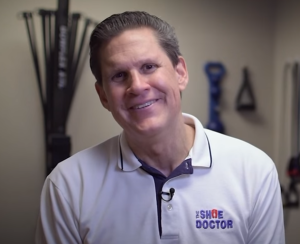If you’re experiencing pain in the heel and arch of your foot, it’s possible that you may be suffering from Plantar Fasciitis. There are a few signs to look out for including heel pain when rising from a seated position or after prolonged standing, pain in the morning when getting up, and pain with the first steps after long periods of rest such as sleeping overnight or sitting in a vehicle for long travels. If these symptoms sound like they could fit what’s going on for you, then don’t hesitate to consult your physician!
What Is Plantar Fasciitis?
Plantar Fasciitis is one of the most common causes of discomfort at your heel and arches of your foot. It starts in a thick band on the bottom known as the plantar fascia, which basically just continues forward from there all along with you until the balls of the feet.
When this ligament gets inflamed due to sometimes unknown reasons such things as heavy workloads on them over time can result in easily causing pain that may need medical attention soon after the onset of symptoms because without treatment they’ll only get worse, not better despite what kind of medication is prescribed.
- Always stop by to get your feet professionally tended to
- Prevent further inflammation with expert care
- Find out how to avoid future problems by using one-stop solutions for all your needs
What Are The Common Causes Of Plantar Fasciitis?
Our body weight comes to rest initially on the heel and then gradually throughout the length of our foot with each stride we take. When it begins to bear weight, that’s when a person’s arch falls too far forward or back; this results in excessive strain for them which may lead to some problems such as plantar fasciitis.
Inward rolling of the foot creates an inward force that can cause pain. A stiff, inflexible posture with a high arch and short or exceptionally tight plantar fascia is most often present in supinated feet.
Common causes include:
- If you’re wearing shoes that never bend when you walk
- Having shoes with poor arch support and with little to no cushioning
- Added weight due to pregnancy
- Obesity
- Sports Injury
- Walking barefoot for a long time
- Calf muscle flexibility is poor
- Physical activity training is inadequate
- Standing for a long time.
The discomfort has been described as a bruise or an aching by some persons. Once you start walking about, the discomfort usually fades away. The discomfort may recur if you keep walking, but it typically goes away after some rest. Pain may spread into the ankle if the bulging plantar fascia irritates a nerve in the foot.
The discomfort has been described as a bruise or an aching by some people who have experienced it. Once you start walking about, the pain usually fades away and may recur if you keep at it for a long time so be sure to take a rest whenever possible!
If You Suspect That You Have Plantar Fasciitis, These Are The Signs That It’s Time To See A Doctor:
- If your pain is severe or prevents you from completing your regular activities, you should seek medical help.
- The discomfort is becoming worse, or it keeps reappearing.
- After two weeks of self-treatment, the pain has not improved.
- If you experience any tingling or numbness in your foot
If you’ve been experiencing foot pain for a while and it seems to be getting worse, we want to help. Call us today! We know all about plantar fasciitis and how best to diagnose and treat this condition so that you can get back on your feet as soon as possible.
Remember, The 3 Arches of Your Feet Still Need Support!
Maybe you have already felt the first symptoms of balance disorders or you want to prevent them from appearing in the first place. Consider getting a foot orthotic device or simply take care of your feet. Start by washing them thoroughly with a gentle soap whenever you take a shower. Being a very complex support system, your feet are your first line of defense against balance-related issues, since their arches provide you with the stability you need in your daily life. It’s time to put your foot down and push back against balance issues. With both feet on the ground, dedicate yourself to keeping them comfortable and healthy. Give us a call and we will scan your feet to make you custom orthotic inserts.
The Shoe Doctor has specialized in providing custom orthotics for 20 years. The right orthotic insoles can greatly reduce foot, knee, and hip pain while increasing performance and comfort. Russell at The Shoe Doctor will help educate and assist you in finding the perfect solution for your particular situation. We will create a 3D map of your feet and make custom orthotics for your hiking boots, everyday shoes, and everything else in between. These orthotics, along with our expert advice, will get you using orthotics like a pro, and have you performing at the peak of your abilities in no time! If you are in the San Francisco Bay Area, give The Shoe Doctor a call to get the best custom orthotics in the area! We are here to assist you, schedule your free consultation here!


